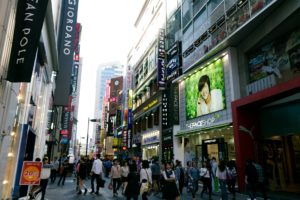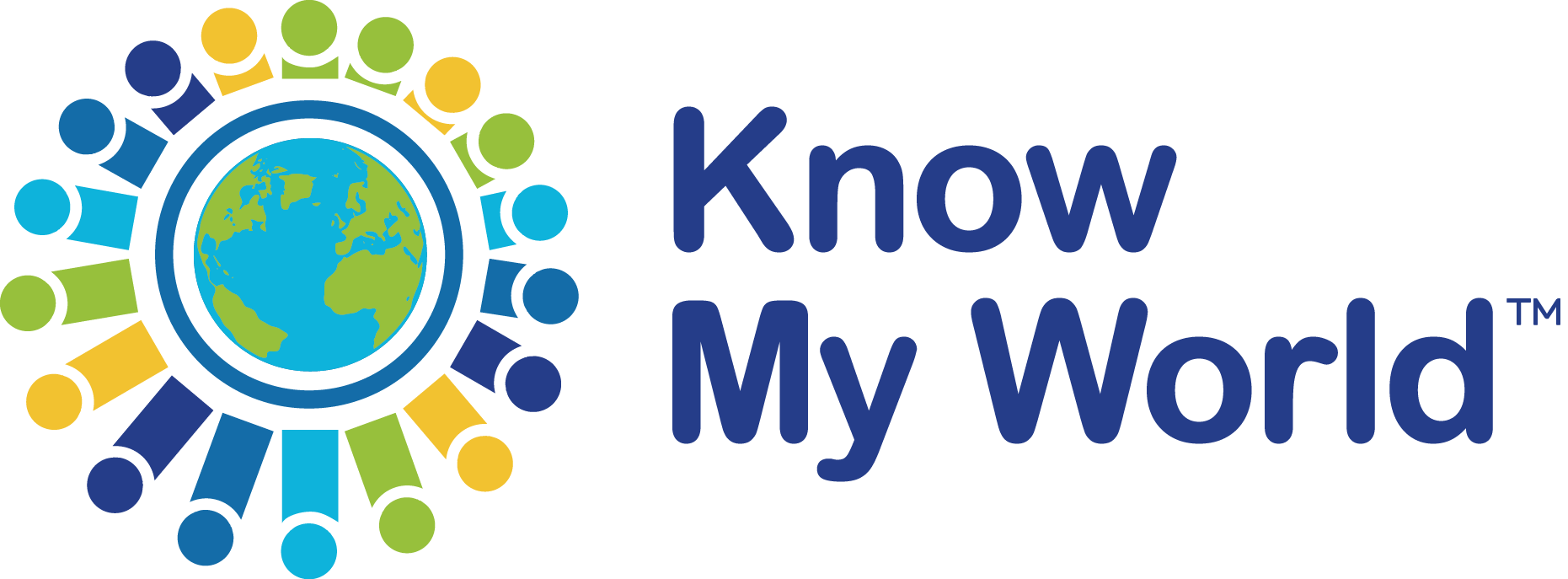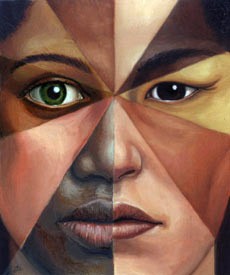Aiden was virtually introduced to me by one of our educational coordinators, Haley. Aiden’s story is a little different from a typical foreigner teaching English in Asia. His story is unique for he speaks about being a person of colour in South Korea and a trans man. When I met Aiden on Skype, he was very easy going, open about his story and very cheerful. I was very interested to hear about how he faces race and gender challenges while living in Asia. This is his story.
Where are you from and where do you live?
I originally from south of US, my family is in Alabama, and I live in Cheonan-Asan, it is 1-hour outside of Seoul, South Korea.
Where and what did you study?
My undergrad was in Rhodes College in Memphis, Tennessee, religious studies major, and masters is in education with a focus on curriculum instruction.
Where are you teaching now and how long have you taught there?
I am teaching at a university, and I have taught here since 2012. I teach university students and adults, English conversation and writing. I have also taught study abroad courses, meaning students that are about to study abroad they need cultural lessons but also survival skills, how to adapt to western university life, preparing them for that.
Why did you decide to become a teacher?
Both of my parents were professors, so education runs in our family. And I wanted the university lifestyle, to change and mentor the younger people. My sister is also a professor in the States. I love teaching, I like the idea of teaching from the heart, which is my teaching style, mentoring students and connecting with them, helping them become better adults, and opening their mind, it is important to expose Asian population to a completely different culture, to break their stereotypes how they see people of colour, how they see queer people, how they see foreigners. They think all foreigners are white, from US or UK, all blonde and blue eyes. Also, I am someone who is older, so I am not the stereotypical foreigner they usually see. Currently, I am the most visible coloured person in our faculty, there’s about 3 of us out of 40.

How is your experience as a person of color?
My experiences here been very good. I want to share how fortunate I am. I came to South Korea as part of a lesbian couple. First international job I had. I had never traveled before outside of the US. It’s important I found a job because of my skills and not my skin or preferences. This is great, so they can have a different mindset when they see other applicants who are of color or young. I hope I have opened their mind, about people committed to their work.
I believe it was important for me to leave a great impression. Now I’m in higher education in South Korea, which is really hard to find professional people of color, because of their stereotypes. And they may be worried they will lose business if they don’t have one with their stereotypical American look. When I ask my students what experiences they have had with English teachers, most of them say they have never seen a person of color, and this means they are not prepared for the real world. They need to get to know me so they don’t have this idea of coloured people from media or movies, and that’s not just black people but also South East Asians. I just hope they don’t have this mistreatment attitude toward other people just because they look different.
I have been more open about my gender and sexuality. I let the students ask me in the beginning of the year and brainstorm questions to ask me to get to know me. It is a teaching moment, I look for those teaching moments and those questions to arise to challenge their assumptions of people. As an English teacher I am not here just to teach English, that’s only a small piece of a puzzle, the larger piece is understanding humans and connecting to other human beings. One student asked me what gender I am. I said I am male but I am FTM (female to male).

What are some unique aspects about your experience in South Korea?
I came to South Korea as a woman, a lesbian, and came as part of a couple. I was out to my coworkers and my boss but not to the students. And then my second job I was working for a gay South African who was a manager of an English school, and through networking we found each other and worked together. And when I started looking for university jobs I knew it was going to be a challenge. But after 15-16 applications I got hired here. There was a queer community at this university amongst foreigner faculty when I came so I was comfortable. But in the nomad life, people come and go, so I was the last one standing in the queer community for a while. Then I started discovering my trans identity. And struggles with how difficult do I want to make my teaching life in South Korea if I explored transitioning as a teacher, as a black person, in a country where they could easily fire me. And having to start all over.
3 years ago I began the transition process. I was scared to share it with my family because I wasn’t sure if I was trans enough by social community standards. I was scared my boss would fire me. But I felt like I would regret not walking down that road if I didn’t do it now. I didn’t want to be in my 40 and 50s thinking I didn’t live my life to the fullest as the best version of myself, and what does that mean to me. Cause trans identity is different for everybody. My boss has been extremely patient and professional with me. I got emotional as soon as I shared with her, it was something like “I’m about to go on this journey and I don’t want to lose my job because of it”.
Fast-forward to now. I am out to my coworkers and most my Korean staff I have interaction with. Most people have switched to using my new name Aiden. I tell students what is appropriate for these types of conversation to have. I have more and more students approach me and come out to me as either gay, lesbian, bisexual, without me even telling them. They just feel this vibe from me where they feel safe to share with me. Most students don’t care, and they still love me and respect me. But I feel like I’m changing minds one day at a time.

What are you plans for the future?
In the future I’d be nervous to start somewhere else. Two things I don’t want. One, I don’t want my story or past experience to be erased. Some trans do not want the past at all. That’s not my experience, I appreciate who I was because it made me a better person now. And two, I don’t want to always be perceived as a typical male. That is not the end of the spectrum that I feel comfortable with. Asia has a very soft masculinity vibe and I love that. It is not this toxic hyper westernized machismo, which I’ll never be able to relate to that. As a teacher and educator and as someone who has a very professional worldly experience, going back to America is daunting. You will not see many black male teachers, or queer teachers of color, and the work environment and political environment is really dangerous now. So I am a little afraid of that but also have to face it head on. I’ll have to go back to the States to change my documents as a trans man. There is a very strong possibility I will go to States next year and stay there for about a year. But then I plan to leave again, either back to South Korea or think about maybe Japan. Even maybe Thailand or Taiwan but I must see the job market first. I do love teaching and love living abroad. I love the expat lifestyle. It does something magical for my spirit as a person.
What can you tell us about the education system in South Korea?
The system is harsh. I see kids being at academies until 10-11 o’clock at night, doing either English, Chinese, Math, Science, or piano. The stereotypes of ‘tiger moms or tiger parents’ which means parents are obsessive and super controlling about their child’s education. And they are very strict and harsh with their kids, forcing them to do things they are not interested at or good at. There is this assembly life, factory feel, we all push our kids in this direction, all have to be number 1, and if you are not number 1 you are a complete failure. Even though it is super competitive and it’s a small country with not too many opportunities for their own people. There is a lack of encouraging independent thinking, which drives me crazy. The mentality for the young people is: you don’t ask questions, you need to do what you are told and if you do it well then magically you will be successful. And when kids fail, there is no safety net for them. When they can’t find a job after university, or there’s no experience, they are lost. It’s interesting as a university professor I see my students as kids, because their maturity level is little limited, because the experience of living at home until you get married, means that you don’t have those life experience that teach you how to fail, so you can learn to be better. You need to learn how to fail at life, need to learn to fall so you can get back up. Not just looking at your parents as a safety blanket. Some students are 24 and they have these adult expectations on them without being ready, cause they don’t have the sufficient life experiences.
What are the biggest misconceptions of South Korea?
People still think South Korea is underdeveloped and not very modern. Also people think it is not safe cause North Korea will cause a war. But I see it as, guns are everywhere in my home country and here not so. Korea is still conservative and racist. Some of it is true, they do have a conservative thinking. People forget that after the war South Korea developed very fast. And I feel like they have a right to think not so great of America at least, because of their experiences. Also sometimes outsiders don’t see teaching as a serious job, they think we are playing. But in reality we have a great education system, and have all resources just as much as in the States.
What Advice would you give new teachers?
Embrace the experience fully. Give South Korea or any other country your respect and be open to embracing new cultural perspectives. Respect the fact that these countries want foreigners to come and improve their society through language and culture acquisition.
Foreigners who don’t like it and they judge the entire country, because they don’t have the same business etiquette as they are used to. It’s a different country, you must learn to adapt and be open to the experience, and most importantly respect it. Also be humble, the fact that you have a choice and an option to travel abroad and live abroad is a blessing. Be humble and grateful for the opportunity and freedom of choice.
Lastly, my advice for a foreigner teacher abroad would be to take the representation of foreigners seriously. To open their mind to different person and experience. I want to challenge the culture in a way that’s respectful. I would like to collaborate more than to take over. Give and take, or push and pull as Koreans would say. When I first came I just wanted to culturally adapt. But after a year I wanted to observe the culture more and participate in the culture more. Thus, my Korean is slowly getting better. I am getting more out of it.
What is your favorite place on earth?
I would have to say South Africa. It is very special to me and it was the first time that I used my entire vacation to travel somewhere. It was my longest vacation I have taken in my adult life. I went by myself, I had some connections there, but it was the biggest investment that I have made for me. It was unreal, and overwhelming.
Thank you Aiden for sharing you story.

